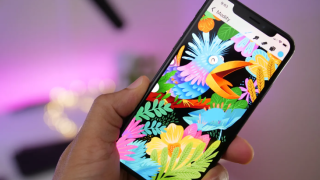Boycotting Chinese Products Is Easier Said Than Done
Dhir Acharya - Jun 22, 2020

The calls for boycotting Chinese products are growing in India. However, have you thought about how that will affect the country and your own life?
Whether you like it or not, most of the products you’re using are either by a Chinese brand or manufactured in China. Your mobile phone, is it a Xiaomi phone, or is it from Oppo, Huawei, OnePlus, Vivo? If you want to boycott Chinese products, you should start with your home, like those Gujarat people who threw their Chinese TV out of the window. So a real supporter of this boycott should have smashed their smartphones by now.
Now, what’s your laptop brand? If it’s Lenovo, it’s Chinese. If it’s from another brand, look at the stamps, they may say “Made in China.” If you keep looking around your house from electronics to clothes, you will find more Chinese or made-in-China products. Are you going to toss all of them out of your home and burn them to the ground?

Now, if your phone is not related to China, take a look at the apps you use. Do you have BigBasket for ordering groceries? Or Swiggy and Zomato for ordering food? Or PayTM for making payments? How about Snapdeal, Flipkart, Ola, Byju, TikTok, and Zoom? They are all funded by Chinese firms.
Many startups in India are also funded with Chinese capital, which makes them part-Chinese. Furthermore, there are joint ventures in sectors like road construction. So the roads you commute every day may be part-Chinese too. Are you going against all of them?
And let’s talk about healthcare. Seventy percent of the Active Pharmaceutical Ingredients used in making allopathic medicines are from China.
Boycotting Chinese products is easier said than done.

For years, leaders of India from the Prime Minister down have been courting China, inviting investments from the country, and helping Indian firms enter the Chinese market. The economies of India and China have deep relationships as well as inter-dependencies that were built in many years, that’s not something you can toss away in a few days.
The impact of a total ban could be similar to that if the suggestion to ban Chinese food of Union Minister Ramdas Athavale if it’s approved. Thukpa and momos are probably Chinese because Tibet is now a part of China.
Now, if we stop drinking tea, eating momos, or using TikTok, that will not affect China nor will it drive its soldiers away from Galwan valley. However, Indian firms that are connected with China will be affected, hence more people unemployed, and the entire Indian economy along with its GPD will slide on a downhill.
Just last week, we saw a new Chinese phone, the OnePlus 8 Pro, sold out in India within a minute after going on sale. Meanwhile, the hashtag #BoycottChineseProducts became the top trend among Indian Twitter users for two days, following the news of 20 Indian soldiers dead in the June 15 battle.
Getting rid of Chinese products makes sense for certain sectors, such as fresh food, but for others like electronics and pharmaceuticals, it seems unlikely. An act like this requires our top leaders’ thinking and discussing rather than a sudden breakout out of pure rage because whether you like it or not, our daily lives are dependent on Chinese products more than you want and know.
Featured Stories

Features - Jan 23, 2024
5 Apps Every Creative Artist Should Know About

Features - Jan 22, 2024
Bet365 India Review - Choosing the Right Platform for Online Betting

Features - Aug 15, 2023
Online Casinos as a Business Opportunity in India

Features - Aug 03, 2023
The Impact of Social Media on Online Sports Betting

Features - Jul 10, 2023
5 Most Richest Esports Players of All Time

Features - Jun 07, 2023
Is it safe to use a debit card for online gambling?

Features - May 20, 2023
Everything You Need to Know About the Wisconsin Car Bill of Sale

Features - Apr 27, 2023
How to Take Advantage of Guarantee Cashback in Online Bets

Features - Mar 08, 2023
White Label Solutions for Forex

Review - Jul 15, 2022
Comments
Sort by Newest | Popular